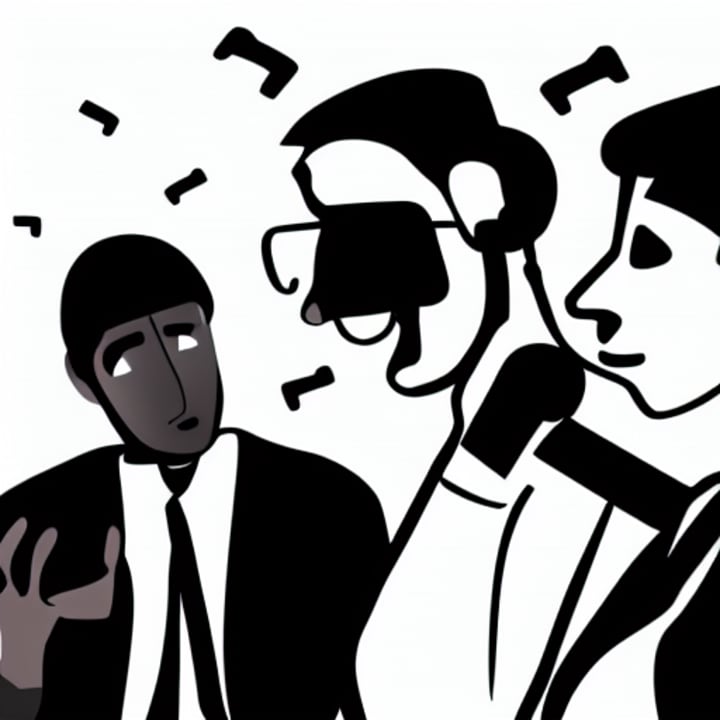"The Art of Active Listening: How to Improve Your Communication Skills
Improve Your Communication Skills

Communication is an essential part of our lives, and it's important to be able to communicate effectively with others to build strong relationships, succeed in the workplace, and make the most of our personal lives. However, communication isn't just about speaking; it's also about listening. In fact, listening is arguably the most important part of effective communication. By actively listening to others, you can build trust, gain insights, and show others that you value their opinions.
Active listening is a skill that requires practice, patience, and effort. Here are some tips to help you improve your active listening skills:
Focus on the speaker. When someone is speaking to you, give them your full attention. Put away any distractions, such as your phone or computer, and make eye contact with the speaker. This shows them that you are fully engaged in the conversation.
Be present in the moment. Don't let your mind wander or start thinking about what you're going to say next. Instead, focus on what the speaker is saying and try to understand their perspective.
Ask open-ended questions. When the speaker has finished speaking, ask them open-ended questions to clarify your understanding of what they said. This also shows them that you are actively listening and interested in what they have to say.
Paraphrase and summarize. After the speaker has finished speaking, paraphrase what they said in your own words to ensure that you have understood their message correctly. You can also summarize what they said to demonstrate that you have listened carefully and remembered the key points.
Avoid interrupting. Interrupting the speaker can be disrespectful and can hinder effective communication. Wait for the speaker to finish speaking before responding or asking questions.
Show empathy. Try to understand the speaker's emotions and feelings, and show empathy by acknowledging their perspective. This can help build trust and rapport in the conversation.
Take notes. If appropriate, take notes during the conversation to help you remember important points and to demonstrate that you are engaged and interested in what the speaker has to say.
By practicing these active listening skills, you can improve your communication skills, build stronger relationships, and become a more effective communicator in all areas of your life. Remember, effective communication is a two-way street, and by actively listening to others, you can create a more productive and fulfilling conversation.

Active listening is a skill that can be developed and improved over time. It's important to remember that listening is not just about hearing the words someone is saying but also understanding their perspective, emotions, and feelings. One way to develop this skill is by practicing mindfulness. By focusing on the present moment, you can be fully present in the conversation and give your undivided attention to the speaker.
Another tip to improve your active listening skills is to be aware of your body language. Maintain eye contact, nod your head occasionally to show that you're engaged, and lean forward slightly to show that you're interested in what the speaker is saying. Your body language can have a significant impact on the speaker's perception of how well you're listening to them.
Active listening is also about being patient and avoiding jumping to conclusions. Allow the speaker to finish their thoughts before responding, and don't assume that you know what they're going to say next. Be open-minded and willing to consider new ideas and perspectives.
It's important to note that active listening doesn't mean you have to agree with the speaker's point of view. You can still actively listen while respectfully disagreeing with them. Acknowledge their perspective and explain your own in a respectful and constructive way.
Finally, don't forget to practice self-reflection. After a conversation, take some time to reflect on how well you listened to the speaker. Did you give them your full attention? Did you understand their perspective? Were you able to ask insightful questions and respond constructively? By reflecting on your active listening skills, you can continue to improve and grow as a communicator.
In conclusion, active listening is a vital skill for effective communication. By focusing on the speaker, being present in the moment, asking open-ended questions, paraphrasing and summarizing, avoiding interruptions, showing empathy, taking notes, being aware of body language, being patient, avoiding jumping to conclusions, and practicing self-reflection, you can become a better listener and communicator. So, the next time you're in a conversation, remember to practice active listening and see how it can transform your communication skills.





Comments
There are no comments for this story
Be the first to respond and start the conversation.